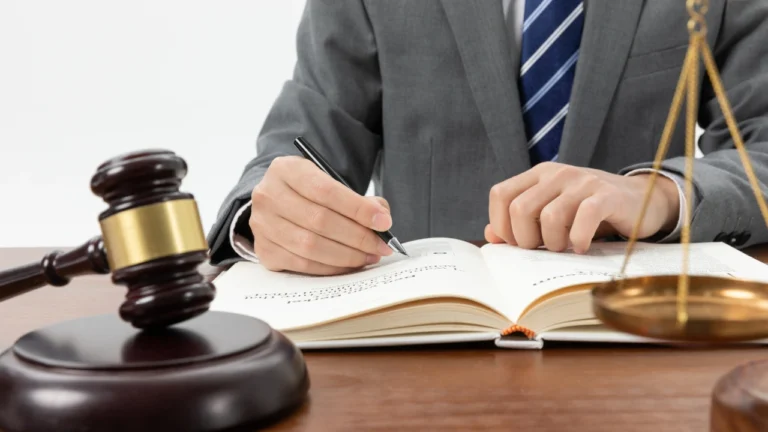🚨AFNI Debt Collector Harassment❓ Stop the Calls❗
AFNI Debt Collection Harassment? Stop the Calls! Tired of AFNI Debt Collection Harassment? Wish there was a way to make the calls stop? Is AFNI collection agency constantly calling and harassing you? AFNI is a third-party debt collector located in Bloomington, Illinois, and while they may have the right to call you over the debts you owe, they have no right to harass or coerce you into making a payment.
If you have a debt harassment problem during the AFNI debt collection process, then you should know that you are not in this situation alone. Several debt collection giants like AFNI inc collections have had their days in court with unsatisfied consumers who sue them over the unlawful and illegal tactics that they often employ during the collection of a debt from delinquent consumers, many of whom are not aware of their rights, or of the fact that debt collection harassment is illegal. Consumers have reported that AFNI collection agency uses aggressive and improper practices to collect debt, including contacting individuals about debts they do not owe and persistent communication despite requests to cease.
The Fair Debt Collection Practices Act (FDCPA), protects consumers’ rights in the context of debt collection. In other words, debt collectors must adhere to a certain set of rules when they are pursuing consumers who owe money. Collection agencies often purchase debts and actively pursue repayment from consumers, sometimes escalating to legal action or negotiations. If a collector violates the FDCPA, you can sue the collector in court. The law allows consumers who have been victims of harassment from debt collectors to get the calls to stop in addition to recover statutory damages of up to $1,000, plus attorney fees and court costs.
Who is AFNI?
AFNI is a collection agency and third-party debt collector located in Bloomington, Illinois. The company boasts of a global reach, with branches in Kentucky, Illinois, Arizona, Alabama, and other states across the USA.
AFNI Collections Phone Number:
Address: 1310 Martin Luther King Dr Bloomington, IL 61701-1465 Phone: (800) 767-2364
Is AFNI Legit?
No, AFNI is a legitimate debt collection agency with a long history of operation. According to the Better Business Bureau website, AFNI inc collections has been in business since 1936, and has received 534 customer complaints filed.

📲AFNI Phone Harassment Numbers
Are you receiving any harassing phone calls from any of these numbers?
866-352-0479, 866-377-8844, 877-545-2474
If so, you may be a victim of AFNI debt collection harassment. The list above is not all the numbers that AFNI collection agency uses. Call us immediately to stop all forms of harassment that you may be enduring during these phone calls.
How the FDCPA Protects you
Regulated by Congress, the , and the FTC, the Fair Debt Collection Practices Act is a federal law that protects consumers like you against the unfair and illegal collection practices often employed by many debt collectors like AFNI debt collection agency in the debt collection process. Debt collection agencies play a crucial role in recovering unpaid debts on behalf of creditors, and it is important for individuals to recognize these agencies on their credit reports and understand their rights under laws such as the Fair Debt Collection Practices Act and the Fair Credit Reporting Act. Although the FDCPA actively defends the rights of consumers, it applies to third-party debt collectors and offers protection only for personal debts. The FDCPA does not cover the consumer if it is a case of first-party debt collection (a situation where the original creditor makes attempts to collect on debts directly owed to them), however, the debt collection laws in your state may offer more protection
Debt collection harassment is more common than you think. In 2019 alone, the FTC received about 75,200 complaints concerning the conduct of debt collectors during the debt collection process. As horrifying as this may sound, it is an improvement from the 84,500 complaints received by the FTC in 2018.
We must also note that a consumer filing a complaint does not necessarily mean that a debt collection agency has violated the FDCPA. Additionally, some complaints received by the FTC are concerning a suspected AFNI scam usually carried out by overseas debt collection scammers who call consumers to harass them and trick them into making payments over non-existent debts.
Debt collection harassment allegations are a serious issue; the agency guilty of the violation can be banned from participating in debt collection if the FTC finds the complaint to be valid. It is the duty of the FTC to keep an up-to-date list of all prohibited parties.
A collection account can significantly affect credit score. If you’ve been contacted by a collector and are worried your credit is being hurt, it might be a good idea to check your credit scores to see if anything has changed.

Key provisions of the Fair Debt Collection Practices include:
- Prohibition of Harassment or Abuse: Debt collectors are prohibited from engaging in conduct that harasses, oppresses, or abuses consumers. This includes tactics such as making excessive phone calls, using profane language, or making threats of violence.
- False or Misleading Representations: Debt collectors are prohibited from making false or misleading statements when attempting to collect a debt. They must accurately represent the amount owed, the consequences of non-payment, and their identity as debt collectors.
- Validation of Debts: Upon request, debt collectors must provide consumers with validation of the debt, including information about the original creditor and the amount owed. They must cease collection efforts until the debt is validated. Using a debt validation letter is a proactive measure for disputing debts with collection agencies. Upon receiving a debt validation letter, consumers must respond within a specific timeframe to challenge the validity of the debt, ensuring that collectors provide proof of ownership and accuracy of the debt details.
- Disclosure of Debt Information: Debt collectors are restricted in their ability to disclose information about a consumer’s debt to third parties. They may only contact third parties to obtain location information about the consumer, and they must identify themselves truthfully.
- Prohibition of Unfair Practices: Debt collectors are prohibited from engaging in unfair practices when attempting to collect a debt. This includes attempting to collect fees or charges not authorized by the original agreement, depositing post-dated checks prematurely, and contacting consumers at inconvenient times.
- Notification of Consumer Rights: Debt collectors must inform consumers of their rights under the FDCPA, including the right to dispute the debt and request validation. They must also provide consumers with information about how to assert their rights.
- Restrictions on Location of Contact: Debt collectors are generally prohibited from contacting consumers at their place of employment if they know or have reason to know that such communication is inconvenient.
Impact on Credit Reports
AFNI Collections can have a significant impact on your credit reports. When a debt is sent to collections, it can negatively affect your credit score. The debt collection agency will typically report the debt to the three major credit bureaus: Equifax, Experian, and TransUnion. This can lead to a decrease in your credit score, making it more difficult to obtain credit in the future.
It’s essential to monitor your credit reports regularly to ensure that the information is accurate. You can request a free credit report from each of the three major credit bureaus once a year from AnnualCreditReport.com. Review your reports carefully and dispute any errors or inaccuracies you find.
If you’re struggling with debt, it’s crucial to address the issue as soon as possible. Ignoring the problem can lead to further damage to your credit score and potentially result in debt collector harassment.
Debt Collection Lawsuits
If you’re unable to pay a debt, AFNI Collections may file a lawsuit against you. This can be a stressful and overwhelming experience, but it’s essential to understand your rights and options.
If you receive a summons or complaint from AFNI Collections, it’s crucial to respond promptly. Failure to respond can result in a default judgment, which can lead to wage garnishment, bank account levies, or even property liens.
When responding to a debt collection lawsuit, it’s essential to assert your affirmative defenses. This can include disputing the debt, claiming the statute of limitations has expired, or arguing that the debt collector has violated the Fair Debt Collection Practices Act (FDCPA).
It’s highly recommended that you seek the advice of an attorney who specializes in debt collection law. They can help you navigate the process and ensure that your rights are protected.

Removing AFNI Collections from Your Credit Report
If you’ve paid off a debt or disputed an error on your credit report, you may be able to remove AFNI Collections from your credit report. Here are the steps to follow:
- Verify the Debt: Ensure that the debt is legitimate and that you owe the amount claimed by AFNI Collections.
- Pay the Debt: If you owe the debt, pay it off in full. Make sure to get a receipt or proof of payment.
- Request Removal: Contact AFNI Collections and request that they remove the debt from your credit report. Provide proof of payment and any other relevant documentation.
- Dispute with Credit Bureaus: If AFNI Collections refuses to remove the debt, you can dispute it with the credit bureaus. Provide evidence to support your claim, and the credit bureaus will investigate and remove the debt if it’s found to be inaccurate.
Remember to monitor your credit reports regularly to ensure that the debt has been removed.
Payment Options and Considerations
If you’re struggling to pay a debt, it’s essential to explore your payment options. Here are some considerations:
- Payment Plans: AFNI Collections may offer payment plans that allow you to pay off the debt in installments. Make sure to review the terms and conditions carefully before agreeing to a plan.
- Debt Settlement: You may be able to negotiate a debt settlement with AFNI inc collections. This involves paying a lump sum that’s less than the original amount owed. However, this can have tax implications and may affect your credit score.
- Credit Counseling: Non-profit credit counseling agencies can help you develop a plan to pay off your debt. They may also be able to negotiate with AFNI collection agency on your behalf.
When considering payment options, it’s essential to prioritize your financial well-being. Make sure to review your budget and ensure that you can afford the payments.
Credit Repair and Recovery
If you’re struggling with debt or have errors on your credit report, it’s essential to prioritize credit repair and recovery. Here are some steps to follow:
- Monitor Your Credit Reports: Regularly review your credit reports to ensure that the information is accurate.
- Dispute Errors: If you find errors on your credit report, dispute them with the credit bureaus.
- Pay Off Debt: Focus on paying off high-interest debt and work on reducing your debt-to-income ratio.
- Build Positive Credit: Make on-time payments and keep credit utilization low to build positive credit.
- Seek Professional Help: If you’re struggling to manage your debt or repair your credit, consider seeking the help of a credit repair company or financial advisor.
Remember, credit repair and recovery take time and effort. Be patient, and don’t hesitate to seek help when needed.

AFNI Inc Collections Complaints
📄The following is a sample list of complaints filed against AFNI Inc. in 2019 and can be found on Pacer.gov.
1:19-cv-01210-SEB-DML HICKS v. AFNI, INC.
2:19-cv-01944-DDP-AS Antonio Owens v. AFNI, Inc.
1:19-cv-20652-DPG Nickles v. AFNI, Inc.
1:19-cv-20651-XXXX Nickles v. AFNI, Inc.
🏛️CONSUMER RIGHTS LAW FIRM, PLLC
Consumer Rights Law Firm PLLC is a law firm that specializes in helping clients who are facing harassment from debt collectors in any form, including telephone communication. Contact a legal professional to stop AFNI debt collection harassment today. Our office has been assisting consumers since 2010, and we have an A+ rating with the Better Business Bureau.
If you are interested in learning more about how to safeguard yourself and prevent AFNI phone harassment, call us at (877)700-5790 for immediate assistance, or visit our website.
FAQs
Who is AFNI and why are they contacting me?
AFNI (Anderson Financial Network, Inc.) is a legitimate third-party debt collection agency that contacts consumers on behalf of original creditors, most often for unpaid telecom, utility, or medical bills.
Is AFNI collection agency allowed to use robocalls?
They may use robocalls, but only with your prior written consent. Unwanted or spoofed robocalls can violate the Telephone Consumer Protection Act (TCPA).
Can AFNI legally harass me with phone calls?
No. The FDCPA prohibits harassment, such as making repeated calls with intent to annoy, threatening arrest, or calling outside 8 AM–9 PM without permission.
What should I do if AFNI keeps calling me?
Document each call’s date, time, and phone number. Send a written debt validation request or cease-and-desist letter. If calls continue, file complaints with the CFPB, FTC, or state regulator.
Can I dispute a debt that AFNI claims I owe?
Yes. Under the FDCPA, you have 30 days from their initial contact to request verification. They must pause collection until they provide proof of the debt.
What if AFNI is collecting a debt that’s time-barred?
If the debt is beyond your state’s statute of limitations, you do not have to pay. However, collectors may still call—so it’s best to dispute it and confirm in writing.
Can AFNI contact my family or coworkers about my debt?
Only to obtain your contact information. They may not reveal details about your debt to third parties—doing so violates the FDCPA.
Can I sue AFNI for FDCPA or TCPA violations?
Yes. If AFNI violates the FDCPA (e.g., harassment, failure to validate) or TCPA (e.g., unsolicited robocalls), you may be entitled to statutory and actual damages plus attorney fees.
Will AFNI reporting affect my credit score?
Yes. AFNI can report your debt to credit bureaus, which may damage your score. You can dispute any inaccurate info under the Fair Credit Reporting Act.
How can I make AFNI stop contacting me?
Send a written cease-and-desist letter by certified mail. They must stop contacting you except to notify you of legal action. If they don’t, file complaints with the CFPB, FTC, or consult a consumer rights attorney.







